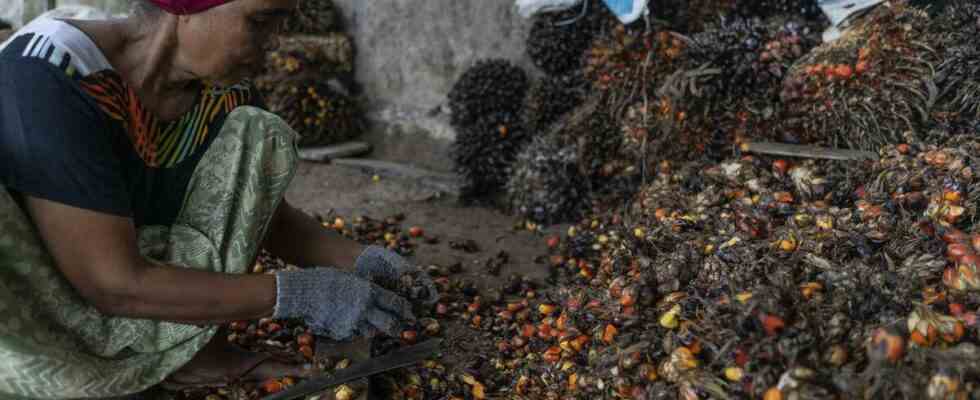Already at its highest since the war in Ukraine, the vegetable oil market is likely to give buyers even more cold sweats with the news coming from Indonesia. Jakarta has indeed started this Thursday to suspend all its palm oil exports, while the country is the world’s largest producer. The price of crude palm oil thus jumped by nearly 10% on Wednesday before the start of the embargo on the Kuala Lumpur Stock Exchange, or +63% over one year.
The archipelago has been facing a shortage and soaring prices of palm oil-based cooking oil on its domestic market for several months and fears a rise in social tensions. Above all, in a last minute reversal on Wednesday evening, the authorities clarified that the suspension would concern all oilseed exports, and not only products intended for edible oils, as indicated the day before.
Securing the domestic market
President Joko Widodo further stressed that supplying the population was “the highest priority”. “As the biggest producer, it’s ironic that we have difficulty getting cooking oil,” he acknowledged.
The country of 270 million inhabitants is indeed suffering from problems of distribution and retention of stocks while producers prefer to sell their cargoes internationally to take advantage of the rise in prices. Jakarta, however, plans to resume exports when the wholesale price of cooking oil drops to 14,000 rupees in the archipelago, after having soared 70% in recent weeks.
The president’s popularity at stake
The supply of palm oil, the main oil used in the archipelago for cooking, has been problematic since the beginning of the year. The most modest consumers often had to wait for hours in long queues in front of distribution centers at subsidized prices in many cities.
Public dissatisfaction with rising food prices has contributed to a decline in the president’s popularity and sparked protests. Eddy Hartono, head of the Indonesian Association of Palm Oil Producers, however, deplores that these measures have already caused a drop in the income of plantation operators.
Indonesia accounts for some 60% of global palm oil production, one third of which is consumed on its domestic market. It exported 34.2 million tonnes last year for edible oil but also for the manufacture of a wide range of products, from cosmetics to food products. “The countries most affected (by the suspension) are India, China, Bangladesh and Pakistan,” said Bhima Yudistira, economist at the Center for Economic and Legal Studies (Celios). According to him, Indonesia risks having to pay penalties for breach of contracts, and even prosecution before the World Trade Organization if this ban is prolonged.

